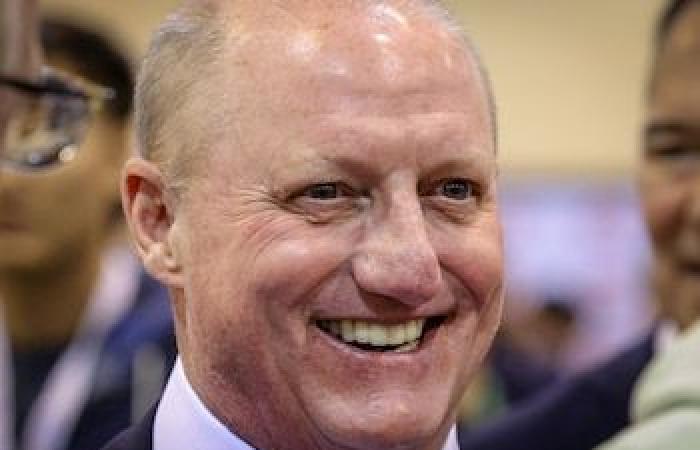Surprising people at 94 is not an easy task. Warren Buffett It has preserved that capacity. At the end of the Annual Board of Shareholders of Berkshire Hathawayheld on May 3, Buffett announced his resignation as CEO of the conglomerate. He will do it at the end of the year, after six decades in office. Buffett had been preparing his march. But he said he did not warn in advance to the majority of Berkshire directors of his ad. Nor did he communicate it to Greg Abelhis alleged successor.
Berkshire Hathaway It was a textile manufacturer when Buffett bought the company in 1965. In the following years he made it an immense insurance company and a conglomerate with interests in all types of sectorsfrom energy to sweets. Used one Investment Strategylooking for companies that seem cheap in relation to their intrinsic value. Between 1965 and end of last year, Berkshire’s market value had increased more than 5,500,000%with one Annual profitability composed of almost 20%. The total performance of the S&P 500 index during that period was 39,000%.
Today Berkshire has a stock capitalization of 1.16 billion dollars. However, Buffett has left his successor a difficult task. Abel has a quarter of a century in the company. He has directed his non -insurance operations – such as his energy, rail and retailers – since 2018. The challenge goes beyond occupying the place of Buffett as the “oracle” of investment. Berkshire’s investment strategy is increasingly difficult to carry out.
In the last year, Buffet has aggressively sold actionsincluding a large part of its participation in Apple, a technological giant. Now, for the first time in two decades, Berkshire has more effective than quoted actions. At the end of March it had 348,000 million dollars in US cash and public debt in the short term in its balance, more than double the amount declared at the end of 2023. SUS Treasury letters represent about 5% of the market in circulation. If Berkshire was a foreign country, it would be the TENTH GREATER US PUBLIC DEBTmore than India, Switzerland or Taiwan.
Buffett’s decision to withdraw from the stock market has so far benefited Berkshire. The company’s shares have risen 20% this yearwhile the S&P 500 index has dropped 3%. Now Buffett and Abel have to decide what to do with their huge cash battery. There are worse problems, but Berkshire’s situation reflects a difficult environment for the type of investment that made buffet famous. Lately you complained that there is not much to buy at a reasonable price. Even after the recent market seizure, the valuations of the traded companies are high in relation to their historical levels.

An option for Abel would be to invest more aggressively abroad. In recent years, Buffett has successfully opted abroad. For example, he invested billions of dollars in several Japanese commercial conglomerates, such as Mitsubishi y Sumitomo. Abel could see that among companies with a value exceeding 5,000 million dollars and a price/benefits ratio less than ten – which suggests that they are valued at a low price – 80% of their value is domiciled outside the United States.
Another option would be depart from investment in value with the hope of finding more companies in which to invest money. That seems unlikely, at least for now. Such a movement would transform Berkshire’s culture and risk provoking the anger of the Buffet’s army. After 25 years in the company, it is unlikely that Abel put the handbrake immediately.
If there is no change in either of the two fronts, Berkshire will have to wait for a market drop to find new and great opportunities to use your cash pile. Buffett has a history of detecting such perspectives. In 1990, in full crisis, it acquired an important participation in the American bank Wells Fargo. He invested in companies such as Johnson & Johnson and Kraft Foods (and again in Wells Fargo) after the world financial crisis of 2007-2009. The list continues. Berkshire’s shareholders expect Abel to have the same oracular vision.
© 2025, The Economist Newspaper Limited. All rights reserved.








